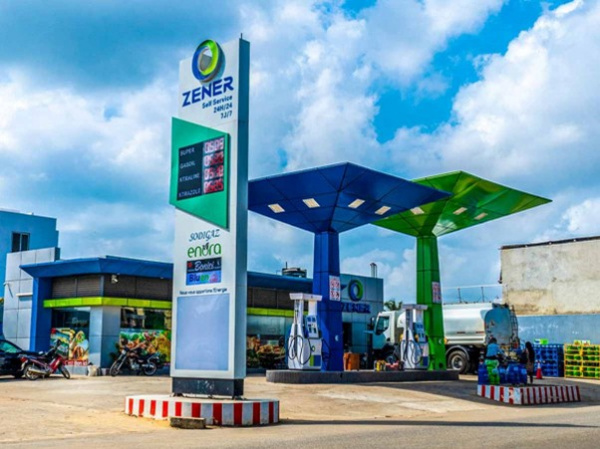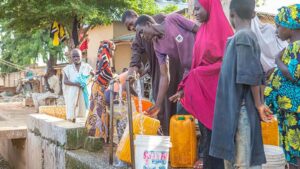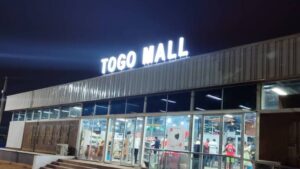In Togo, as of the end of March 2025, dredging operations on the Gbaga channel, situated between Zébé and Agbanakin, have reached 52% completion, based on observations made during a field visit on Thursday, April 3, 2025. This cross-border initiative, backed by the West Africa Coastal Communities Resilience Investment Project (WACA ResIP), seeks to restore both the economic and ecological functions of this river corridor shared by Togo and Benin.
The 30-kilometer channel, which was once navigable, has become obstructed due to sediment buildup and invasive vegetation, adversely affecting trade, fishing activities, and heightening flood risks. A project manager noted, “The Gbaga channel served as an economic and social center for the communities along its banks. Its restoration is crucial for revitalizing this region.”
Adou Rahim Alimi Assimiou, the coordinator of the WACA ResIP Togo project, stated, “The cleaning of the Gbaga channel is part of the WACA project implementation.” He further explained that the project aims to restore the channel’s functions through three key actions: the removal of invasive plants (mowing), sediment cleaning, and the recovery of debris.
The total investment for this project amounts to 4.77 billion FCFA, which includes the removal of approximately 55,000 cubic meters of sediment from a 10-meter-wide and 45-centimeter-deep section. The project has been assigned to TC Marines Zilla Group and is under the supervision of the INROS LACKNER/DECO consortium.
Simultaneously, engineers are focused on ensuring the project is completed on schedule. The dredging operations utilize advanced equipment that facilitates effective sediment removal while maintaining the ecological integrity of the channel. “We are also committed to reusing the materials we extract, especially for stabilizing the banks,” adds another project manager.
In parallel, 468 m² of aquatic vegetation has been cleared, resulting in 21,000 tonnes of biomass that has been converted into compost. This compost, along with the sand that has been extracted, will be provided to local communities, creating income opportunities and bolstering local agriculture.
The initiative also encompasses the reforestation of mangroves and the revival of fishing activities.
Sustainable resource development
In addition to dredging, the project features an innovative strategy: converting water hyacinth into organic fertilizer. This composting initiative takes place at multiple locations where the plants are crushed, dried, and processed. “Previously, these plants overran our waters and hindered fishing. Now, they have turned into a source of income,” remarks Abla Donsi, a resident of Agbanakin involved in the processing of plant waste.









